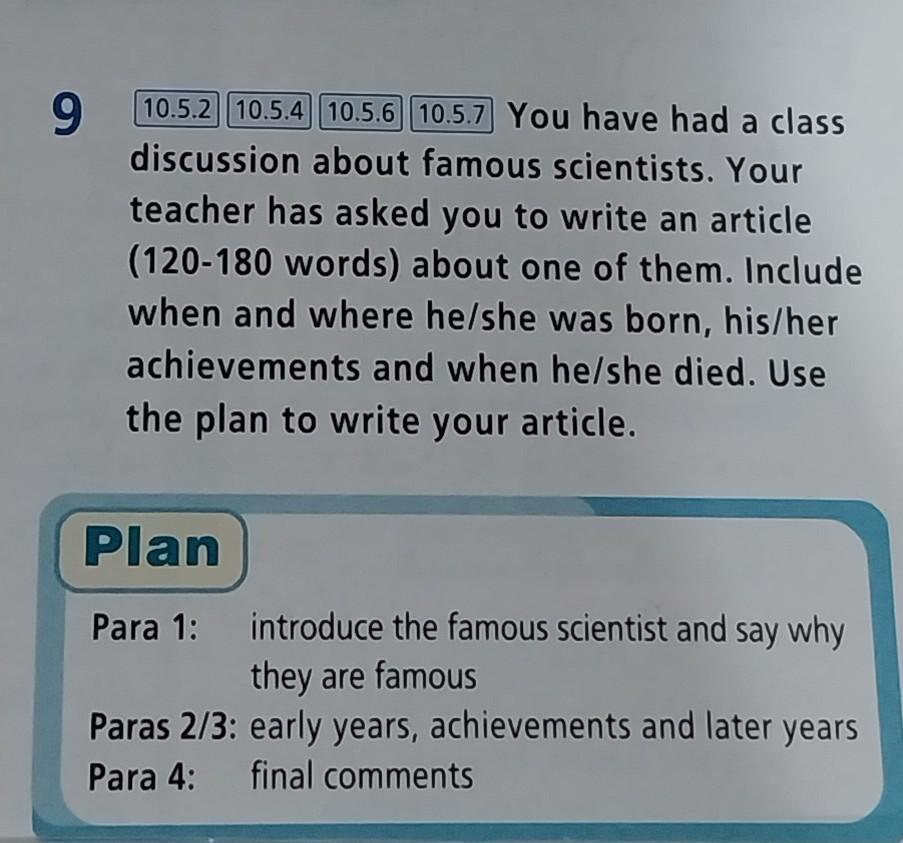9 10.5.2 10.5.4 10.5.6 10.5.7 You have had a class discussion about famous scientists. Your teacher has asked you to write an article (120-180 words) about one of them. Include when and where he/she was born, his/her achievements and when he/she died. Use the plan to write your article. Plan Para 1: introduce the famous scientist and say why they are famous Paras 2/3: early years, achievements and later years Para 4: final comments пожалуйста срочно нужен

Ответы
Ответ:
Plan:
Introduction: Briefly introduce the scientist and state why he/she is famous.
Early life - Provide brief details about where he/she was born, early education and family life.
Achievements - List some of the notable contributions and discoveries the scientist is known for.
Death - Mention the date and circumstances surrounding the scientist's death.
Article:
Marie Curie: A Pioneer of Radioactivity
Marie Curie was a groundbreaking scientist known for her pioneering work in the field of radioactivity. Born in Poland in 1867, Curie was the youngest of five children and grew up in a family that valued education and scientific discovery. Despite facing discrimination as a woman in a male-dominated field, Curie managed to make several key contributions to the study of radioactivity.
Curie's early life was marked by tragedy when her mother and sister died of tuberculosis. However, she persevered with her education and went on to study at the Sorbonne in Paris, where she met her future husband, Pierre Curie. Together, the Curies began experimenting with radiation and discovered two new elements, polonium and radium. They also developed techniques for isolating radioactive isotopes, which laid the foundation for modern nuclear physics.
In recognition of her groundbreaking work, Curie was awarded two Nobel Prizes, in both Physics and Chemistry, becoming the first person, and the first woman, to win two Nobel Prizes. Her research into radiation laid the foundation for cancer treatments using radiation therapy, which have saved countless lives.
Sadly, Curie died in 1934 of complications resulting from her prolonged exposure to radiation during her research. Despite her untimely death, her legacy lives on as a pioneering figure in the field of radioactivity, and an advocate for women's education and scientific advancement.